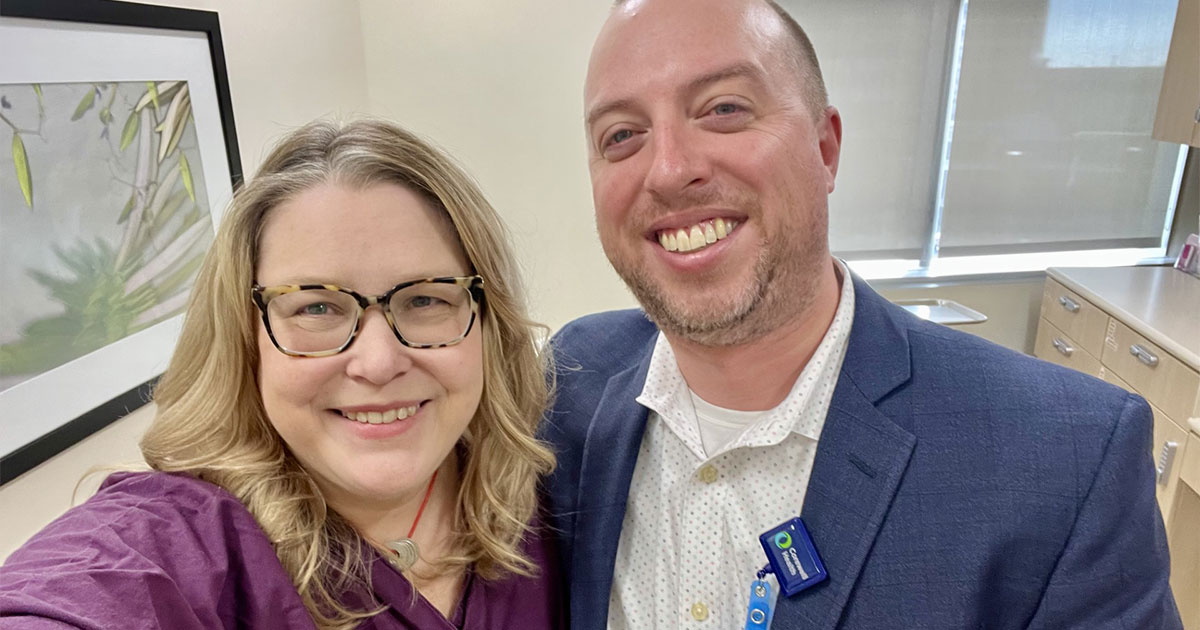In Part One of this two-part post, we explored the strong emotions that can be tied to losing a pet and gained a better understanding of the pain some experience. Continuing my conversations with recently grieving friends Kurt, Libby, and Amy, this follow-up provides insight into how we can offer compassion and productive responses.
You can empathize, but you won't fully understand—and that's OK.
With any grief, there's a temptation to correlate our own experiences. Saying "I know how you feel" or "I lost Fluffy a year ago—I get it" isn't really helpful—and it diverts the attention to you, rather than the person mourning. Instead of talking about your own situation, focus on positive words or fond memories of their beloved pet.
Libby Fox, who lost Scout, her Boxer, a few months ago, said, "I think with all grief, it's better to acknowledge it and talk about it. I love to remember stories about Scout and look at photos. It can make me sad, but I also get to remember all the joy. Joy always outweighs sorrow."
She added, "Almost any words are better than no words. One colleague said, 'I don't have any words.' That meant a lot. Knowing that someone cares enough about you to get you are suffering means the world. The words don't have to be perfect and not everyone understands what it is to have and love a pet but knowing that people wanted to walk with us through the pain was heartening."
Kurt Carlson had to say goodbye too soon to Daisy, his English Pointer, who was taken by an aggressive cancer. He said, "There are no words you can say to someone to make it hurt any less, but time does heal all wounds eventually. When I think back on my other pets that I've lost, the passage of time does help me reflect and think instinctively about the happy moments, rather than feeling sad. So I liked it when people gave me permission to be sad or said it was OK if I wanted to cry or, conversely, be angry at the sheer unfairness of it all."
There will never be a replacement—so just don't go there.
As has been said time and again, everyone grieves differently. Some choose to fill the void with a new fur baby quickly or after time. Others couldn't dream of it—ever. Neither is the definitive right or wrong way; it's up to the individual to decide what will fit their needs.
It's also a deeply personal decision and asking about it, without invitation, is not advised.
"It was particularly upsetting to me when people would ask, 'So are you going to get another dog?' in the immediate aftermath of her death," Kurt said. "I'm sure their intentions were innocent, but the impact was hurtful. It made it seem like Daisy was a pair of shoes that I tossed out because the soles wore thin, and folks were curious what kind of shoes I'd get next. It seemed such an obtuse thing to ask."
Libby added, "I was worried that someone might comment that, 'It was only a dog,' 'It wasn't like she was a person,' or 'You can always get another one.' I might have popped that person in the nose. I'm happy to say we have wonderful friends and family who knew Scout's passing was a very sad time for us. I'm also happy I didn't have to pop anyone in the nose."
 Photo courtesy of Amy L Charles.
Photo courtesy of Amy L Charles.
Tread lightly on The Rainbow Bridge.
There's no question: This poem written specifically about pet loss has brought consolation to many. But be conscious about sharing it and aware of specific circumstances. Have five others already shared it? Has your grieving friend been through this a few times before? There may be instances when this ubiquitous reading isn't appropriate.
Kurt said, "I wish people wouldn't have mentioned the Rainbow Bridge. I'm only being half-serious, because it's a beautiful poem and a loving sentiment to share with a pet owner experiencing loss. In fact, I originally was deeply moved and touched by it. I had never heard of it before, until it was shared with me after one of our first dogs, Lilly, died. It truly comforted me.
"But since then, I've now lost Sophie in 2009, Spencer in 2015 and Daisy in 2019. I'm 'Rainbow Bridged out' and don't want to read the poem anymore or ever again. Deep down, I know the person is coming from a place of genuine empathy, so on the outside I am grateful—but now you know what I'm really thinking!"
Above all, be kind ... thoughtful ... and present.
Fear of saying the wrong thing can alienate a person from a difficult situation.
The reality is, you don't have to say much; you just need to be there. When you do choose words, think them through and consider what could be most helpful. Simply showing you care can be all that's needed.
Amy L Charles, whose precious Zafirah, a Saluki, passed away unexpectedly while Amy was at an out-of-town trade show, said, "When I arrived home, I was met with teary eyes and beautiful condolences, and I learned that the staff at Whiskers had taken turns staying with Zada, Zafirah's niece, so she wasn't alone while I drove back to be with her.
"The kindness, consideration, compassion, love and great thoughtfulness shown by so many helped me get through that day and beyond. Those who know me know well how much my pups mean to me and were nothing but gracious. People offered condolences later in the year, whenever they saw me next."
Libby said, "We had so many people who reached out to us after Scout died. It meant a lot. If you knew anything at all about us, you knew we were crazy about that dog. She meant the world to us and had been an integral part of our lives for more than nine years."
Kurt added, "We're fortunate to have a great support network with our family and friends, and the outpouring of kind comments on social media, cards in the mail, flowers, and gifts really made a difference. I really appreciated the people who encouraged us to take our time and experience the loss."
Allison Kay Bannister, a West Michigan resident since 1987, professional writer since 2002 and GVSU alumna, recently launched her own freelance writing business. Allison enjoys travel, art, dance, food and exploring world cultures—and, of course, writing about all these and more.




